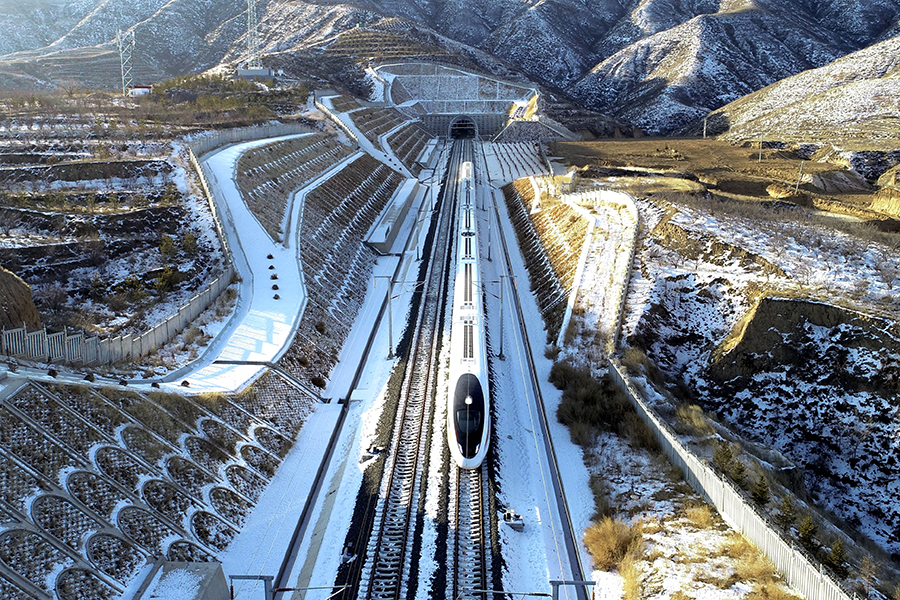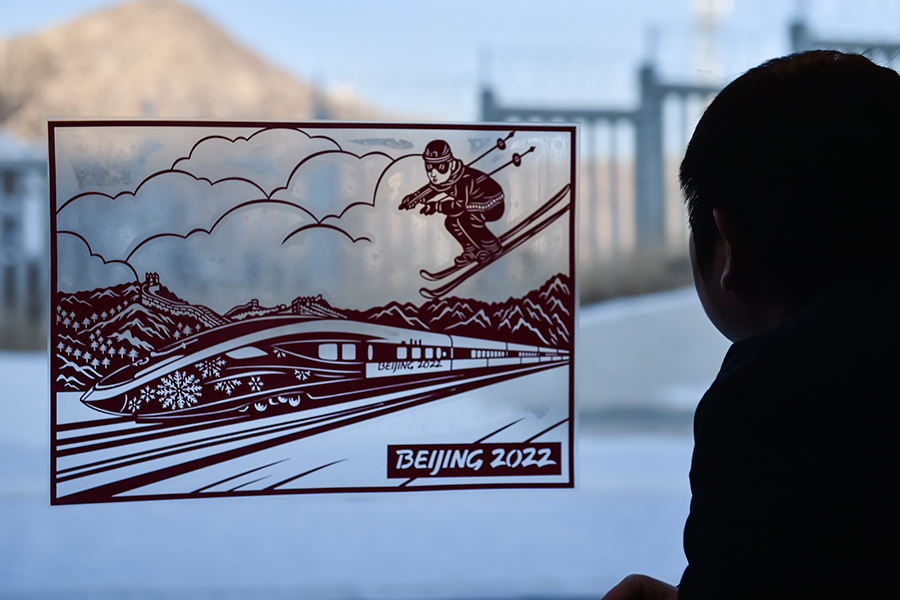Rail line opens new prospects
Beijing-Zhangjiakou route set to bring direct benefits to impoverished areas.
The opening of the Beijing-Zhangjiakou high-speed railway is expected to help with poverty alleviation among rural residents and counties in the Beijing-Tianjin-Hebei region, bringing more opportunities to boost local industries, particularly with the 2022 Winter Olympics approaching.

The 174-km high-speed railway track has reduced the travel time between Beijing and Zhangjiakou, two host cities of the 2022 Winter Olympics, from more than three hours to an hour. [Photo/Xinhua]
Zhangjiakou, about 200 kilometers northwest of Beijing and the co-host city of the 2022 Winter Olympic Games, is the most impoverished area near the capital. Of its 18 counties and districts, five are deeply impoverished.
By the end of 2019, around 98,000 rural residents from 747 villages in Zhangjiakou had been lifted from poverty, according to local authorities.
The example of Zhangjiakou demonstrates the Communist Party of China's pledge to establish a moderately prosperous society in all respects before the celebration of its centenary in 2021 and lift all rural residents out of poverty, said Xu Lin, head of the State Council Information Office.
"It also means significantly that this year we will make every effort to achieve the goal from the grassroots level."
Xu made the remarks to journalists who were about to start an investigative reporting tour of poverty-relief projects in Zhangjiakou, Hebei province, on Tuesday.
"These vivid stories and achievements in poverty alleviation demonstrate the progress China has made in poverty reduction, which will provide good examples for the next generation," he said.

The 174-km high-speed railway track has reduced the travel time between Beijing and Zhangjiakou, two host cities of the 2022 Winter Olympics, from more than three hours to an hour. [Photo/Xinhua]
Han Shuqing, a senior official from China State Railway Group, said there were 1,967 railway lines passing through impoverished regions in 2019.
Of those, the 174-km Beijing-Zhangjiakou line, with a maximum designed speed of 350 km/h, reduces the travel time between the two cities from more than three hours to 47 minutes, making Hebei one of the few provinces with a high-speed rail system connecting all of its cities, he said.
Speaking about the benefits the railway line will bring, Zheng Kuan, 69, a farmer from Kangbao county in Zhangjiakou, said: "My son told me that there will be more visitors coming and opportunities to sell my potatoes and tomatoes."
Zhang Jinggui, a 63-year-old farmer from Kangbao, said: "I can visit Beijing much more easily since the new line opened, and I plan to visit Beijing this weekend, since it will only take a few hours to get there and return.
"As the country prospers, farmers like me benefit a lot. With more visitors coming to Zhangjiakou in the future, I believe that tourism will help lift most of us out of poverty," he added.
Northwestern Beijing's Yanqing district also has benefited from the opening of the railway.
Yu Bo, the district director, said the railway overcame the transport problems that the mountainous area once faced and it will greatly help the holding of the upcoming 2022 Winter Olympics.

